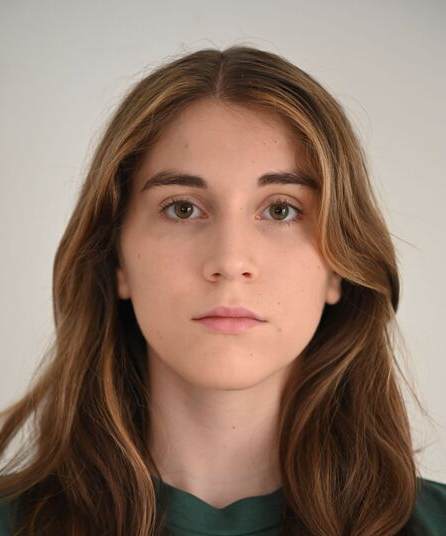Dominik Bork
Associate Prof. Dipl.-Wirtsch.Inf.Univ.
Dr.rer.pol.
Dominik Bork
- Email: dominik.bork@tuwien.ac.at
- Phone: +43-1-58801-194308
- Office: HG0206 (1040 Wien, Favoritenstrasse 11)
- About:
Dominik Bork is working as an Assistant Professor for Business Systems Engineering at TU Wien since July 2020. Prior to moving to TU Wien, he worked as a Postdoc at the University of Vienna. He received his Diploma in Information Science and his PhD (Dr. rer. pol.) from the University of Bamberg where he primarily worked on multi-view enterprise modeling and metamodeling.
During his academic career, he was visiting researcher at and is up to date active collaborator with the University of Technology Sydney, the Instituto Tecnologico Autonomo de Mexico, the University of Pretoria, Stockholm University, and the Ecolé de Mines d’Albi.
Dominik Bork is elected domain expert of the Special Interest Group on Modelling Business Information Systems of the German Informatics Society (GI).
- Orcid: 0000-0001-8259-2297
- Keywords: Conceptual Modelling, UML, Model Engineering, Artificial intelligence, object oriented software design, Enterprise Architecture, Process Engineering
- Roles: Associate Professor
Publications
Interoperability between metamodeling frameworks: Bridging modeling SDK for visual studio and eclipse modeling framework
 Florian Cesal
Florian CesalKeywords: MSDKVS, EMF, metamodelling, modeltransformation, M3B, transformation bridge, MDSE, abstract syntax, Sirius, graphical concrete syntax
Astract: Powerful metamodeling frameworks for realizing Model-Driven Software Engineering (MDSE) exist, each having its own strengths, weaknesses, functionalities, programming languages and engineering communities. By combining their individual benefits, it would be preferable to establish interoperability between them, i.e. transforming metamodels and models created in one framework into equivalent (meta)models in other frameworks. Thus enabling the freedom of choosing the metamodeling platform without risking a lock-in effect.Two of the most well known metamodeling frameworks, which are well documented and available for free are the Eclipse Modeling Framework (EMF) and the Modeling SDK for Visual Studio (MSDKVS). This thesis gives detailed explanations on how to achieve interoperability between EMF and MSDKVS on two levels, namely the abstract and graphical concrete syntax levels. The platforms are compared, their features are mapped accordingly and a bidirectional transformation bridge on their metamodel and model layers is implemented. The approach will be extensively evaluated by transforming available metamodels and generated or manually created models thereof. The evaluation regarding the validity, executability and the expressiveness of the transformation bridge is done quantitatively and qualitatively.
Cesal, F. (2023). Interoperability between metamodeling frameworks: Bridging modeling SDK for visual studio and eclipse modeling framework [Diploma Thesis, Technische Universität Wien]. reposiTUm. https://doi.org/10.34726/hss.2023.100304
Accessibility in web modeling tools: Systematic review and conceptualization of a keyboard-only prototype
 Aylin Sarioğlu
Aylin SarioğluKeywords: conceptual modeling, accessibility, web modeling, model engineering, GLSP
Astract: According to the World Health Organization, the number of disabilities is increasing steadily. Additionally, as the internet has become a fundamental aspect of our daily lives, it is essential to ensure that all individuals, regardless of their abilities, have equal access to different information and services. Despite a growing effort to promote inclusion worldwide, there are still inaccessible tools and technologies in the field of computation. This results in unequal access to information systems and products for many people with disabilities. Consequently, accessibility should also be a key element, particularly in conceptual modeling, since web modeling tools have grown in popularity, as these tools have become essential in various fields, allowing professionals to work together, create, and build intricate web-based systems. In this regard, web accessibility is crucial for web modeling tools, as it ensures that users with disabilities can contribute fully to the modeling process and have equal chances to benefit.This thesis presents existing web accessibility issues in conceptual modeling research by identifying current research gaps and delineating a vision toward more inclusive, i.e., disability-aware conceptual modeling, based on a systematic review of the literature and current modeling tools. One key finding relates to a gap in research and tool support concerning physical disabilities. Based on these results, this thesis presents the first modeling prototype that can be used keyboard-only, thereby including users with physical disabilities to engage in conceptual modeling.
Sarioğlu, A. (2023). Accessibility in web modeling tools: Systematic review and conceptualization of a keyboard-only prototype [Diploma Thesis, Technische Universität Wien]. reposiTUm. https://doi.org/10.34726/hss.2023.106766
Keywords: testing, model engineering, web modeling, GLSP, modeling tools
Astract: Testing plays an important role in the quality assurance of software applications. It serves as a means to uncover potential issues introduced by code changes. As modern software systems become increasingly complex, manual testing practices often do not guarantee comprehensive coverage. Hence, automated testing has emerged as a solution to ensure thorough evaluation. This thesis delves into the domain of testing diagram editors, particularly focusing on the Graphical Language Server Platform (GLSP), which utilizes the Language Server Protocol, enabling developers to construct web modeling tools. In accordance, this thesis investigates the challenges of testing diagram editors. The investigation delves into the mechanics of browser automation and assesses the strengths and limitations of modern web testing frameworks such as Selenium, Cypress, and Playwright. This evaluation lays the groundwork for developing an extensible and maintainable testing framework tailored to GLSP. Within this context, the thesis addresses essential questions concerning how diagrams can be tested and interactions automated.For this reason, developing a solution that effectively addresses the unique demands of such tools is explored and encompasses various factors, including architectural and design principles, to form a foundation of an efficient and adaptable testing framework.To conclude, a comprehensive test suite is constructed. This suite spans a range of scenarios, each with different aspects of GLSP-based diagram editors to assess the testing framework’s capabilities in addressing those challenges.
Metin, H. (2023). Testing of GLSP-based web modeling tools [Diploma Thesis, Technische Universität Wien]. reposiTUm. https://doi.org/10.34726/hss.2023.106767
Knowledge graph-based generic modularisation of conceptual models
 Jan Michael Laranjo
Jan Michael LaranjoKeywords: conceptual modeling, knowledge graph, modulaisation, genetic algorithm, model-driven engineering
Astract: Conceptual models are an integral part of information systems. They abstract concrete instances to display and emphasise specific aspects. These models grow and over time lead to monolithic artefacts and increased complexity. Modularisation is a process and technique to reduce complexity and make conceptual models more comprehensible by decomposing monolithic artefacts into smaller, understandable modular units. However, automatically finding a good modularisation solution, especially for any conceptual model, is difficult.Currently, there is a lack of a framework that can automatically modularise any conceptual model without any manual operation, where users can easily control configurations and extend the framework. Using the same framework or tool for different conceptual models, e.g. UML or BPMN models, is impossible. Most automatic modularisation approaches focus on specific conceptual models.This thesis aims to develop a complete modularisation framework, called GGMF, which stands for Generic Genetic Modularisation Framework, with a user interface. Users can customise parameters and specify objective criteria for modularisation solutions. It embeds the CM2KG framework for transforming conceptual models into knowledge graphs. A genetic algorithm receives the knowledge graph as an input and determines modularisation solutions. The framework generates the solutions as modularised knowledge graphs. The framework is designed to be extensible. Users can define custom objectives for the fitness function and replace the genetic encoding and operators with their own definitions.Finally, the work is evaluated by focusing on the configuration aspects, the impact of parameter changes, the comprehensibility of modularisation solutions and comparison with state-of-the-art modularisation-related techniques.
Laranjo, J. M. (2023). Knowledge graph-based generic modularisation of conceptual models [Diploma Thesis, Technische Universität Wien]. reposiTUm. https://doi.org/10.34726/hss.2023.99585
Exploring Enterprise Architecture Knowledge Graphs in Archi: The EAKG Toolkit
 Philipp-Lorenz Glaser
Philipp-Lorenz Glaser Emanuel Sallinger
Emanuel SallingerKeywords: Archi, ArchiMate, Enterprise architecture, Knowledge graph, Modeling tool
Astract: This paper presents the EAKG Toolkit that entails a new Knowledge Graph-based representation of enterprise architecture (EA) models and further enables reasoning on EA knowledge. Our developed EAKG Toolkit is unique in the sense that it i) transforms ArchiMate models into a KG representation – the Enterprise Architecture Knowledge Graph (EAKG), ii) visualizes the EAKG for interactive exploration, and iii) extends the EAKG with additional nodes and edges to visually represent detected EA smells.
Glaser, P.-L., Ali, S. J., Sallinger, E., & Bork, D. (2023). Exploring Enterprise Architecture Knowledge Graphs in Archi: The EAKG Toolkit. In Conference Proceedings: Enterprise Design, Operations, and Computing. EDOC 2022 Workshops (pp. 332–338). Springer. https://doi.org/10.1007/978-3-031-26886-1_21
Teaching
Seminar for Master Students in Software Engineering & Internet Computing
Semester: 2024W; Nr: 180.777; Type: SE; Hours: 1.0; Language: English; View on TISSResearch Seminar
Semester: 2024W; Nr: 188.446; Type: SE; Hours: 2.0; Language: if required in English; View on TISSLiterature Seminar for PhD Students
Semester: 2024W; Nr: 188.512; Type: SE; Hours: 2.0; Language: German; View on TISSModel Engineering
Semester: 2024W; Nr: 188.923; Type: VU; Hours: 4.0; Language: English; View on TISSBachelor Thesis for Informatics and Business Informatics
Semester: 2024W; Nr: 188.926; Type: PR; Hours: 5.0; Language: if required in English; View on TISSSoftware Engineering
Semester: 2024W; Nr: 194.020; Type: VU; Hours: 4.0; Language: German; View on TISSProject in Computer Science 1
Semester: 2024W; Nr: 194.145; Type: PR; Hours: 4.0; Language: if required in English; View on TISSProjects
JSON-basierte, web-natives Modellierungsframework für Model-Diffing
Name: JSONVerse; Title: JSON-basierte, web-natives Modellierungsframework für Model-Diffing; Begins On: 2024-07-01; Ends On: 2025-01-31; Context: Austrian Research Promotion Agency (FFG); View Project WebsiteTowards Low-Code Business App Development - ER2CDS
Name: ER2CDS; Title: Towards Low-Code Business App Development - ER2CDS; Begins On: 2024-01-01; Ends On: 2024-12-31; Context: valantic Business Technology & Transformatio GmbH; View Project WebsiteAutomatisiertes End-to-End-Testen von Cloud-basierten Modellierungswerkzeugen
Name: InnoScheckEclipsesource23; Title: Automatisiertes End-to-End-Testen von Cloud-basierten Modellierungswerkzeugen; Begins On: 2023-05-01; Ends On: 2024-04-30; Context: Austrian Research Promotion Agency (FFG); View Project WebsiteDiplomarbeitsbetreuung AI Readiness Assessment
Name: DA-EFS; Title: Diplomarbeitsbetreuung AI Readiness Assessment; Begins On: 2023-01-24; Ends On: 2024-01-23; Context: EFS Unternehmensberatung GesmbH; View Project WebsiteMFP 4.2 Advanced Analytics for Smart Manufacturing
Name: MFP 4.2; Title: MFP 4.2 Advanced Analytics for Smart Manufacturing; Begins On: 2022-10-01; Ends On: 2023-09-30; Context: CDP Center for Digital Production G; View Project WebsiteDigital Platform Enterprise
Name: DEMO; Title: Digital Platform Enterprise; Begins On: 2022-01-01; Ends On: 2024-12-31; Context: European Commission; View Project WebsiteTeam
Business Informatics Group, TU Wien
Professors
Christian Huemer
Ao.Univ.Prof. Mag.rer.soc.oec.Dr.rer.soc.oec.
Dominik Bork
Associate Prof. Dipl.-Wirtsch.Inf.Univ.Dr.rer.pol.
Gerti Kappel
O.Univ.Prof.in Dipl.-Ing.inMag.a Dr.in techn.
Henderik Proper
Univ.Prof. PhDResearchers
Aleksandar Gavric
Univ.Ass. MEng. B.Eng.
Galina Paskaleva
Projektass.in Dipl.-Ing.inDipl.-Ing.in BSc

Marianne Schnellmann
Univ.Ass.in BSc MScMarion Murzek
Senior Lecturer Mag.a rer.soc.oec.Dr.in rer.soc.oec.
Marion Scholz
Senior Lecturer Dipl.-Ing.inMag.a rer.soc.oec.
Miki Zehetner
Univ.Ass. DI Bakk.rer.soc.oec. MScSyed Juned Ali
Univ.Ass. BSc MScStudent-Staff

Florian Fankhauser
Projektass. Dipl.-Ing.Julia Smejkal
BSc






